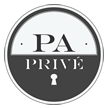Meetings are unpopular because they take up time–usually that of many people. However, there are good meetings and there are bad meetings. Meetings can be an excellent use of time when they are well run. Bad meetings drone on forever, you never seem to get to the point, and you leave wondering why you were even present. Effective ones leave you energised and feeling that you’ve really accomplished something.
Here are ten tips to ensure your meetings are as effective as they can be.
Schedule meetings well in advance
Meetings are best scheduled at least a week in advance and at times when those involved are at their most alert and productive, so it wise to agree on what is the best time to suit all that will be involved to maximize positive outcomes, if agreement is hard reach the best times are traditionally between the hours of 8.30 a.m. and 11.30 a.m.
Invite only essential people
Meetings with fewer people in the room have the potential to end faster. If you have regular attendees at your meetings who rarely speak, ask yourself if they really need to be there.
Be clear about the objective
State the purpose of the meeting in the invite and again at the beginning of the meeting. Be sure to explain how the meeting will advance the overall project goals.
Examples of a meeting objective
• Do you want a decision?
• Do you want to generate ideas?
• Are you getting status reports?
• Are you communicating something?
• Are you making plans?
Allot time frames by topic
Considering the total time available, assign realistic time slots for each item. During the meeting, if the group hasn’t reached a decision within the time provided, suggest next steps or refer the item to a next meeting or committee.
Set a time limit
Human focus and attention is high for 30-45 minutes. Effective meetings are rarely more than 90 minutes in duration. People have limited attention spans. If the agenda is long, can the meeting be split?
Prepare an agenda
Everyone knows an agenda leads to an effective meeting. A meeting without an agenda is like a journey without a map. It is guaranteed to take longer and produce fewer results.
Encourage Participation
In every meeting, it seems like a few people tend to dominate the conversation. Get fresh perspectives and encourage collaboration by asking for opinions from people who have kept quiet for most of the meeting.
Read: Documents that are commonly used In meetings
Summarise and agree actions
Make notes of key points as the meeting proceeds and summarise what’s been said at the end of each item. Then agree an action point and give someone responsibility for carrying out the action – with a deadline.
Follow up
The process doesn’t end after the discussion closes. You’ll want to send a summary to attendees as soon as you can afterward. This will remind participants about what was accomplished and what needs to be done.
Finish on a high note
Getting each person in the group to say something positive can really build team cohesion and motivation in the long term.
Do you lead a lot of meetings in your administrative role? What other tips do you have for organising and running effective meetings? Please share in the comments below!






